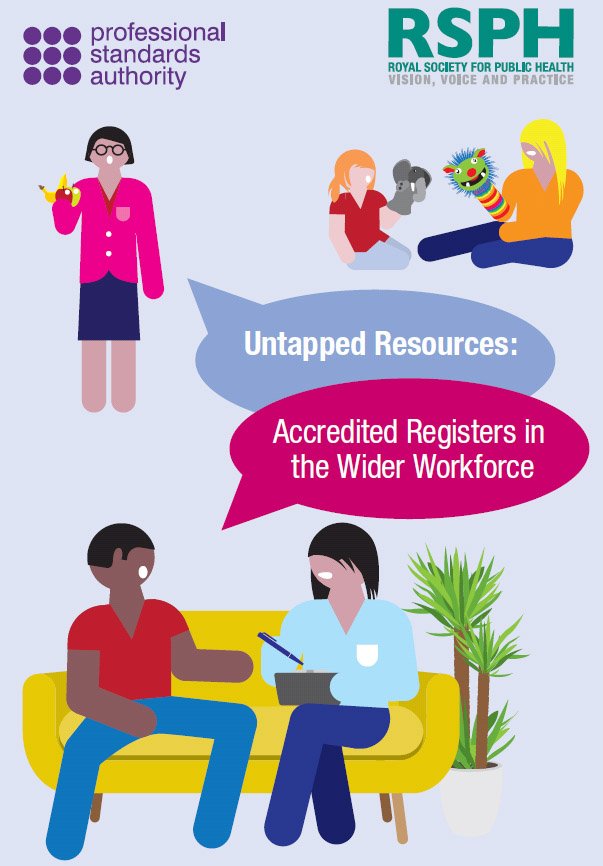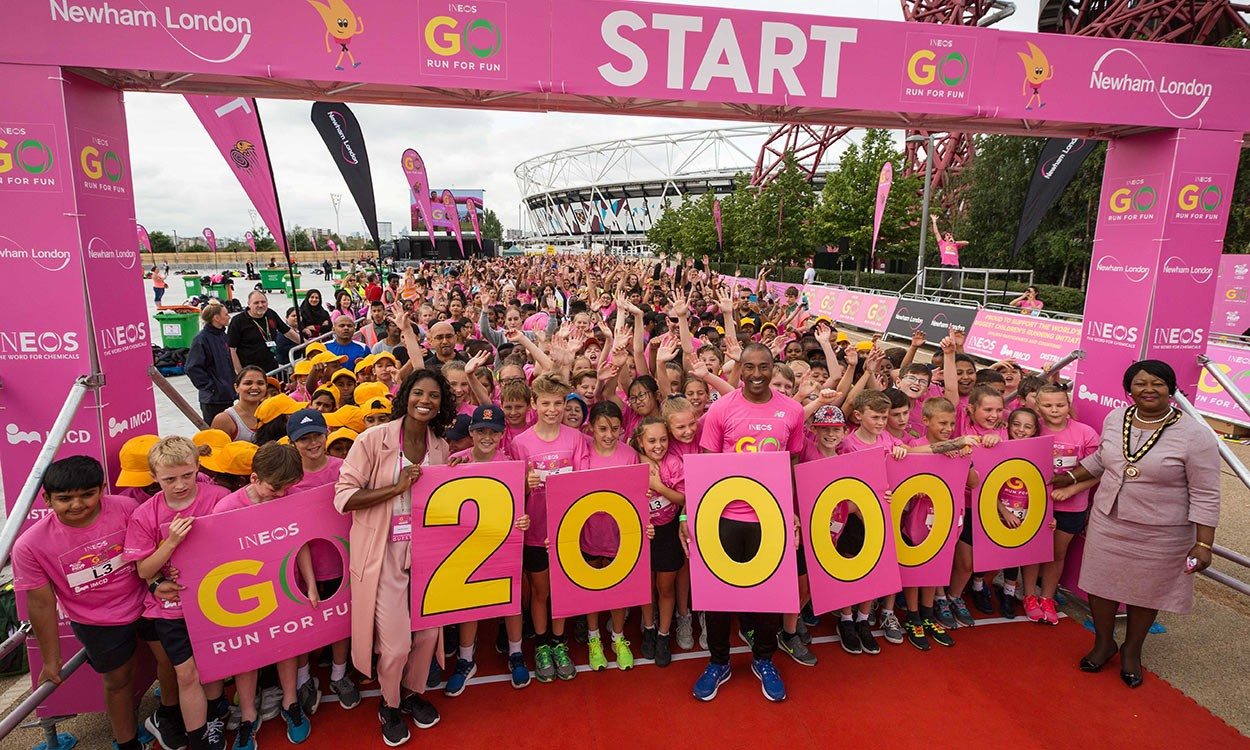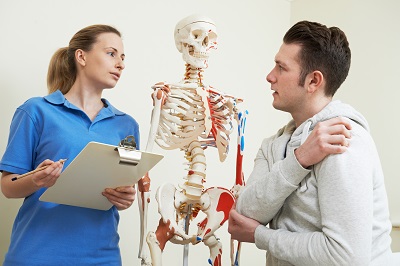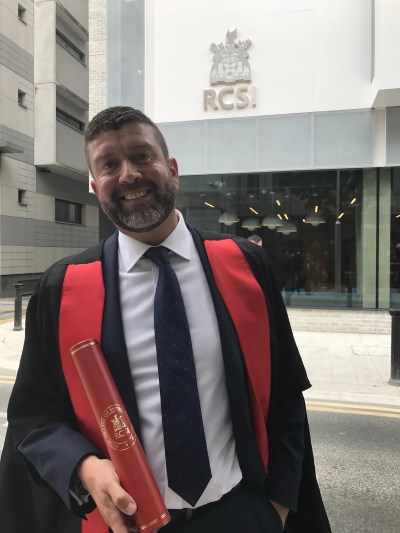News - Page 14
Our Chairman, Steve Aspinall, explains in a blog post for the RSPH website, why the accredited registers workforce has such a vital role to play in supporting the public's health.
Monday, 11 December 2017

We face some stark health inequalities in the UK, with a 20-year difference in life expectancy between our most and least deprived areas. We also have 6 out of 10 adults who are overweight or obese and can currently expect 96,000 tobacco related deaths each year.
Utilising the nearly 80,000 strong accredited registers (AR) workforce is not only a great idea that can change the health of our nation, it is also a pragmatic approach to a problem that has challenged our more traditional healthcare workforce for a number of years.
This resonates even more strongly with BASRaT-accredited Sport Rehabilitators who have been proponents of using physical activity and exercise as both prevention and medicine for a number of years. Physical activity improves sleep, helps maintain a healthy weight, manages stress, improves the quality of life as well as reducing the chances of type 2 diabetes (-40%), cardiovascular disease (-35%), falls, depression and dementia (-30%), joint and back pain (-25%) in addition to reducing colon and breast cancer by up to 20% (1). It makes perfect sense that the strong AR workforce should be in an ideal position to help improve public health; our practitioners spend a lot a time with patients, frequently up to an hour, and develop strong therapeutic relationships that lend themselves to a wider health assessment and interventions for both prevention and treatment.
RSPH's recent report, Untapped Resources: Accredited Registers in the Wider Workforce, identifies clear challenges that we need to overcome in order to utilise the extensive AR resources effectively. The majority of the wider medical professions are either still unaware of the wider AR workforce or don’t realise how much they can contribute to public health and reducing the burden of disease in modern society, although we can already see this changing and I hope with the advent of this report, we will see even more positive steps being taken.
One obvious barrier, especially for patients in more deprived areas, is the current lack of financial support when a patient wants to access AR practitioner services. This is clearly something that needs addressing in light of the financial benefits of keeping our population healthy for our health service and wider economy, and I am sure will be at the heart of future discussions with stakeholders. To support this, members of the AR workforce need more authority to make appropriate direct NHS referrals, freeing up GP time that could be much better used elsewhere; this is something that Sport Rehabilitators already do to a large extent in private settings and it makes perfect sense to review the authority for making referrals in different settings. Going hand in hand with this, is the local development of signposting information for AR practitioners so they have a directory of local healthy lifestyle services to enable appropriate referrals and making the most from every patient contact.
From the perspective of BASRaT, healthy lifestyles are directly relevant to the reasons many patients see our registrants. Sport Rehabilitators are trained to support behaviour change, especially as it relates to making healthy lifestyle choices and using PA and exercise as interventions to combat the burden of disease in the 21st century. We look forward to a more integrated and proactive healthcare workforce that fully utilises the registrants of the AR occupations, and a healthier UK!
View the Untapped resources report here https://www.rsph.org.uk/about-us/news/guest-blog-untapped-resources.html
Do sports medicine clinicians have credible alternatives to knee arthroscopy for the degenerative knee?
Friday, 03 November 2017
BJSM, October
This article proves useful and practical reading for alternatives to arthroscopy, it recommends not limiting treatment to one form of exercise therapy, looks at what will work best for the patient and explores combinations of different exercise therapies.
At least 10 randomised controlled trials and a systematic review attribute knee arthroscopy with a clinically insignificant benefit, and shows no benefit when compared with a cost-effective, supervised exercise therapy programme. The article covers information that practitioners need to know about their patient, weight management and what the patient should expect as part of their treatment.
A recent survey illustrated a lack of knowledge of current guidelines to recommend supervised exercise therapy and education. 44% of respondents were unaware of evidence against arthroscopy. The article recommends engaging with the evidence, attending courses to increase knowledge base and having confidence to provide appropriate exercise therapy. Key things to do now, to help patients, provides the summary of this very useful piece.
Read more at http://bjsm.bmj.com/content/early/2017/10/18/bjsports-2017-098166
The Daily Mile reaches Hawaii - aloha!
Tuesday, 15 August 2017
The Daily Mile is going from strength to strength with schools in 30 countries now participating, including Kamalii Elementary School in Hawaii and schools in Indonesia, Honduras, Egypt and Dubai. The Daily Mile Foundation will keep working on expanding internationally, supporting schools from around the world to join the movement.
Over the last few months, The Daily Mile has had many exciting successes. Here are some highlights:

- Alongside GO Run For Fun, the world’s largest children’s running initiative, The Daily Mile Foundation brought together 5000 primary school children from London and across Britain to take part in a 2 kilometre fun run in June. VIP guests including Olympians Denise Lewis and Colin Jackson cheered the children on at the event at the Queen Elizabeth Olympic Park.
- The Scottish government will work with The Daily Mile to look at increasing participation in schools and nurseries across the nation, with a view to help the Scottish Government achieve their ambition of becoming the world's first 'Daily Mile Nation'. "Our ambition is for Scotland to be the first ‘Daily Mile’ nation with roll out to nurseries, schools, colleges, universities and workplaces across the country, " states the SNP policy for encouraging physical activity. "Every school will be offered help to become a Daily Mile school."
- A recent study revealed that children who do The Daily Mile do better at school. Sports scientists Fitmedia Ltd monitored 76 year six pupils at Coppermill Primary School in Walthamstow for 12 weeks as they started The Daily Mile. Children who ran The Daily Mile performed up to 25 per cent higher than expected in reading, writing and maths SATs. They were also fitter, more confident and better behaved.
The Daily Mile is a popular health and wellbeing initiative, brainchild of former headteacher Elaine Wyllie, encourages children aged 2-11 years to run or jog/walk for 15 minutes every day in their schools and nurseries. In this time, most children average a mile or more distance. The idea is simple and profoundly effective; every child can take part, regardless of their age or personal circumstance and it's not competitive, so every child succeeds. It's free for schools and, most importantly, the children love it!
Parents of children who take part in The Daily Mile comment that their children are eating and sleeping better, are stronger and more resilient, and are calmer and more content. Teachers report that challenging behaviour is reduced, that the children are concentrating better and are quicker to settle into their schoolwork.
View our case study on Woodfield Primary School (Wigan Case Study) and how The Daily Mile is working well in the Wigan area. The school is a fantastic illustration of the difference The Daily Mile can make.
Find out more about The Daily Mile at www.thedailymile.co.uk Or follow The Daily Mile on Twitter (@@_thedailymile) and Facebook (/thedailymile.uk).
Shoulder Rehabilitation BJSM Podcast
Thursday, 20 July 2017
This is a valuable podcast which demonstrates the importance of psycho-social readiness, upper and lower limb quadrants and the kinetic chain in the rehabilitation of a shoulder injury. It explains that the rehabilitation process is about the body as a whole, not solely focusing on rehabilitation of the injured limb.
This 25-minute podcast by Jo Gibson, a top physiotherapist and specialist in shoulder rehabilitation and injury, focuses on recurrent shoulder injuries, pre and post-surgical rehabilitation, understanding psychological and psychosocial aspects alongside the emotive processes and apprehension.
In the podcast, Jo focuses on the importance of a pre-op assessment in terms of taking time to check the player’s understanding of their injury, the importance of listening to the patient and in turn understanding the patient’s psychosocial issues to help them engage in the rehab process.
In terms of rehab post-operation, Jo focuses on the need to consider the shoulder part of the whole kinetic chain. It has been demonstrated in contact sports, performance correlates of the upper limb are very highly correlated with lower quadrant performance, so adding kinetic chain exercises can reduce abnormal load on the shoulder. It was also demonstrated that working the unaffected arm at a high level can have a strength increase effect on the operated arm.
Jo then focuses on discharge criteria again in terms of psychosocial readiness and the upper limb and kinetic chain. Some examples of tests used for return to play include the upper extremity Y balance test and closed kinetic chain upper extremity stability test.
BJSM podcast: SoundCloud

Dr John Morgan, Esteemed Executive Committee Member of BASRaT, has been made a Fellow of the Faculty of Sports and Exercise Medicine
Thursday, 20 July 2017
Dr John Morgan, Clinical Director of Bucket and Sponge Medical Services and BASRaT committee member, has been made a Fellow of the Faculty of Sports and Exercise Medicine of the Royal College of Surgeons of Ireland and The Royal College of Physicians in Ireland. The award was made on 10th July 2017, to mark his outstanding contribution to sports and exercise medicine.
Dr Morgan, who has been practicing medicine for 19 years, is also a GP at Pennygate Medical Centre in Hindley, Wigan. Additionally, he is director of both Dr1ve Medicals (providing medical examinations for commercial drivers) and of Enrich Aesthetics.
Well known in the world of sport, Dr Morgan has acted as Physician to Lancashire Rugby Union and to Warrington and Widnes Rugby League Clubs. He is the current doctor of Orrell Rugby Union Club, Leigh Centurions Rugby League Club and of the Ireland National rugby team.
Dr Morgan said:
"It is an honour and privilege both to receive this accolade and to support and care for all of my patients within sports medicine and general practice. The work we have done in raising awareness that increased levels of physical activity can both prevent and treat disease has enhanced the lives of many people."
Dr Morgan joins a list of Fellows who represent the most respected sports and exercise experts in the country. He offered his congratulations to all other new Faculty Fellows and said: "During my career in medicine I have lived by the maxim that learning is lifelong and I have continued to learn and develop new skills, that has helped spur my interest in medicine and make me the person I am today."



